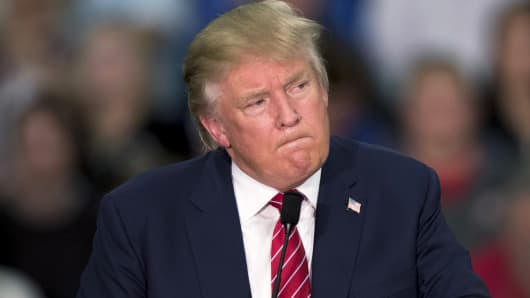Super Tuesday has come and gone. Supertrump continues to wreak havoc on the GOP's perception of itself, as he promises to transform the right into a mirror image of the left. The past few days confirm that each reflection of leftist values seems to increase his support among primary voters—while alienating those who have long seen themselves as the moral and intellectual leaders of the conservative movement.
On Sunday, Trump claimed—implausibly—that he lacked the information necessary to form an immediate opinion about David Duke and the Ku Klux Klan, though he did eventually disavow their support. Voters across the Super Tuesday states appeared to pay the incident little heed. Trump's best showing of the evening—by far—came in liberal Massachusetts, hardly Klan country even when the KKK was an important force in American politics.
In several southern states, such as Georgia, Trump won every key demographic, including those with the highest levels of education and income. Pundits and activists from across the political spectrum, on the other hand, were withering in their criticism. The differences between critiques from the left and the right were profound.






